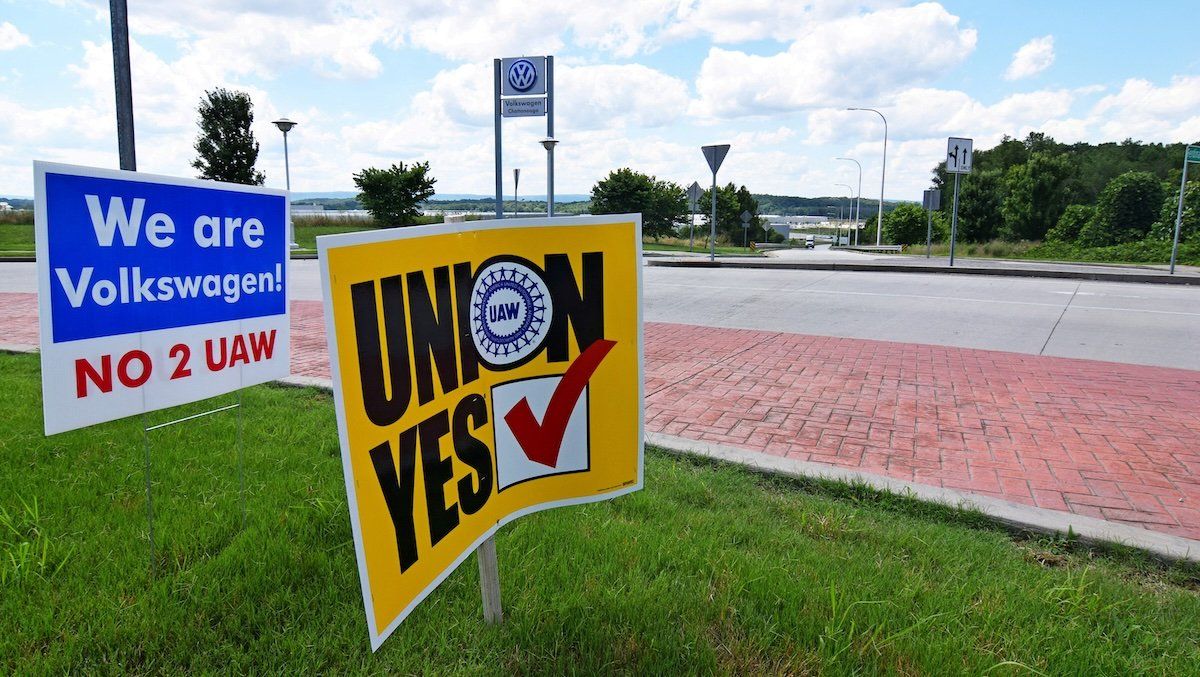Workers at the Volkswagen plant in Chattanooga, Tenn., have until 8 pm Friday to choose whether to join the United Auto Workers union, a vote that could determine the trajectory of labor unions across the American South.
After the UAW’s historic strike last year against the Big Three automakers in Detroit earned big successes at the bargaining table, the union launched a $40 million campaign to win over nonunion auto factories, particularly those in the South. A victory in Chattanooga — Volkswagen’s only plant in the world with no labor representation — will gun the UAW’s engines ahead of an upcoming vote at a Mercedes-Benz plant in Alabama.
Pro-union workers at the plant believe the UAW will help them negotiate better pay, benefits, and more flexible time off. Republican governors in Tennessee, Texas, South Carolina, Mississippi, Georgia, and Alabama, meanwhile, say unionizing could hurt local economies. After all, they argue, part of the reason foreign automakers set up shop in the South, creating lots of well-paying jobs, was to avoid union stronghold states like Michigan.
Two previous votes to unionize at the plant have failed, but about 70% of workers pledged to cast “yes” ballots this time.
